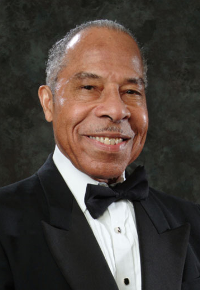Parade of advocates and family members air KanCare complaints at National Disability Council forum
by Andy Marso, KHI News Service
Kansans with disabilities make up about one-fourth of KanCare, the state’s managed care Medicaid model.
But they’re a vocal segment, and they and their advocates painted a picture Tuesday of a system struggling to provide them with the long-term supports they need to stay in their homes and communities rather than institutions.
Two members of the National Council on Disability were in Topeka to hear what managed care has meant in the state. Kansans with disabilities and their service providers lined up to tell them the switch to three private insurance companies, known as managed care organizations (MCOs), has created more bureaucratic hurdles and often forced them to fight to maintain their services.
“It just seems to be this constant battle to get what you’re entitled to,” said Rocky Nichols, executive director of the Disability Rights Center of Kansas. “There is a lot of battle fatigue.”
The National Council on Disability is an independent federal agency that makes recommendations to Congress and the executive branch.
Gary Blumenthal, a former Kansas legislator who now runs an advocacy group for developmental disability service providers in Massachusetts, and Clyde Terry, the CEO of an independent living advocacy group in New Hampshire, were hosts of Tuesday’s forum.
They were gathering information to submit to the federal Centers for Medicare and Medicaid Services as CMS prepares to make new rules regarding managed care. They came to Kansas because it was the first state to put all Medicaid services — including long-term supports for people with disabilities — under managed care, but it’s becoming a national trend.
“No other state has been as aggressive in pursuit of managed care,” Blumenthal said. “So Kansas, whether it wants to (be) or not, is the laboratory.”
Kari Bruffett, secretary of the Kansas Department for Aging and Disability Services, represented Gov. Sam Brownback’s administration at the forum.
Bruffett said when KanCare began in 2013, the goal was to integrate medical care with behavioral health and long-term support services.
She said it’s still early, but some goals are being met, pointing to a 27 percent drop in emergency room visits for people with disabilities who receive home and community-based services.
Bruffett said the administration built in safeguards to address fears expressed during the disability council’s last visit two years earlier.
“We heard those concerns, and you heard those concerns as well,” she said. “We took steps to ensure no one was left hopeless.”
Bruffett also said the administration had poured $65 million into waiting lists for home and community-based services — waiting lists that had been growing for more than a decade but now are shrinking.
Nichols said the drop in the number of Kansans on the physical disability waiver waiting list should be good news. But he said since the KanCare launch, the number of people receiving services also had plummeted.
“That’s unprecedented,” he said.
Nichols said he believed people were dropping out of the program because of the administrative hurdles they have to surmount to keep the services.
Topeka resident Johné Green testified to those hurdles.
Green’s adult daughter, Naomi, suffered brain damage five years ago because of complications from jaw surgery. She went from being a graduate student at the University of Kansas to needing around-the-clock care, Green said.
Green’s daughter did not qualify for the traumatic brain injury waiver, but she got her on the physical disability waiver. Every six months, Green said she has to fight her daughter’s MCO, Sunflower State Health Plan, over her home health care.
Green said her daughter traditionally had received 18 hours of attendant care and six hours of less-intensive sleep support per day, while Sunflower would like to change that to 10 hours of attendant care, 12 hours of sleep support and two unattended hours per day.
Green said she has filed appeals with KanCare ombudsman Kerrie Bacon, a state employee whom Green praised, and also had worked with a lawyer from Nichols’ organization to fight the changes.
“That’s the only way I am able to keep her attendant care hours,” Green said. “And they have been certified by every physician she has.”
State officials say federal rules require Naomi Green’s case to be reviewed every six months to justify providing her additional services.
Several providers expressed concerns Tuesday about service reductions as well as delays in claims processing and payments.
They also raised concerns about the shift from community-based case managers for people with disabilities to care coordinators who work for the MCOs. Some said the care coordinators were good people but that they struggled to be responsive because they were saddled with caseloads that were far too large.
Angela de Rocha, a KDADS spokesperson, said while the individual complaints are “of concern” to state officials, they “do not paint a picture of the system in the aggregate.”
Rosie Cooper, executive director of the Kansas Association of Centers for Independent Living, said her concerns about KanCare go beyond service reductions, bureaucratic hurdles and overloaded care coordinators. She said she is aware of several instances when consumers and their families had been bullied by the MCOs.
People who have objected to proposed service reductions have been told their service hours will be cut more if they appeal, Cooper said. Others have been told to sign “plans of care that are blank,” she said. In one instance, she said, family members with a disabled loved one were threatened by their care coordinator because they planned to speak at Tuesday’s forum.
“I know the head of the MCO would not approve this, but their care coordinator said, ‘If you testify, I will cut all of your hours,’” Cooper said. “And it scared them to death.”
State officials are looking into Cooper’s allegation, de Rocha said.
After the hearing, Blumenthal was asked about the alleged threat.
“It would be shocking, and I don’t think it would be legal,” he said. “So any family that has been threatened should feel free to come forward.”
Disability rights advocates nationwide who had resisted managed care are becoming resigned to it as more states reduce their workforces and turn over Medicaid administration to private companies, Blumenthal said.
He said the disability community is looking to the federal government — which funds more than half of Medicaid — to take a more active hand in monitoring the quality of privatized programs rather than taking states at their word.
“CMS has been somewhat of an enabler in allowing states to take great risks with the lives of people with disabilities,” Blumenthal said. “In essence, you have the states reporting on their success, with not the most objective eye.”
The nonprofit KHI News Service is an editorially independent initiative of the Kansas Health Institute and a partner in the Heartland Health Monitor reporting collaboration. All stories and photos may be republished at no cost with proper attribution and a link back to KHI.org when a story is reposted online.
– See more at http://www.khi.org/news/article/kancare-not-working-for-people-with-disabilities-advocates-say#sthash.s4xsDb7a.dpuf


